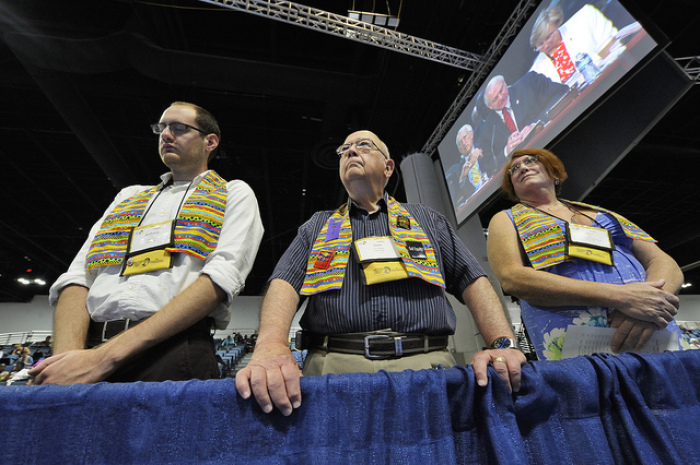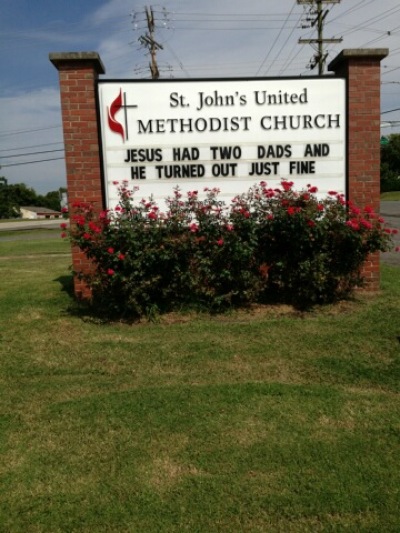Analysis: United Methodist Regional Bodies Offer Mixed Results on Homosexuality Debate

For decades the United Methodist Church has debated its position on homosexuality, in arguments that have sometimes hinted at schism for the Mainline Protestant Denomination.
Every four years the global Church meets for General Conference, where issues including the UMC's stated opposition to homosexuality and gay marriage are debated.
Most notably, the UMC's Book of Discipline has declared since 1972 that homosexuality is "incompatible with Christian teaching" and it is this language many have demanded be removed.
The UMC is divided into regional bodies known as Annual Conferences, the vast majority of which are located in the United States.
Annual Conferences held their gatherings and dealt with a diverse array of church matters over the course of this year.
The Christian Post examined how 54 of the U.S.-based Annual Conferences dealt with the issue in light of the next General Conference, scheduled for May 2016 in Portland, Oregon.
Petitions Supporting Removal
Of the 54 U.S.-based Annual Conferences examined, 13 of them passed resolutions supporting the striking of the "incompatible" language from the Book of Discipline.

These included the Conferences of Baltimore-Washington, California-Nevada, California-Pacific, Desert Southwest, Great Plains, Greater New Jersey, Iowa, New York, Northern Illinois, Rocky Mountain, Upper New York, Virginia, and West Michigan.
The language of these resolutions varied, but ultimately they supported completely removing the "incompatible" language or changing it to be more accepting of homosexuality.
In Virginia's Petition 14, which passed by a vote of 989-868, the proposal argued that the Bible's denunciations of homosexuality did not apply to the modern day or to consensual same-sex behavior.
"These passages do not address the practice of homosexuality that is affirmed in a life-long, covenanted relationship that embodies 'celibacy in singleness and fidelity in marriage,'" read Petition 14 in part.
West Michigan's petition was known as "A Third Way," which amended the language to read that the UMC "historically has not condoned."
The omnibus Third Way also called for allowing individual clergy to decide on whether or not to officiate gay marriages and allow bishops to decide whether or not to ordain openly gay individuals.
At present, the UMC prohibits both the ordination of non-celibate homosexuals and the blessing of any marriage union other than that of one man and one woman.




























